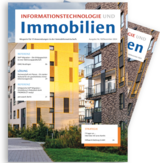Accounting for leasing relationships in accordance with the IFRS 16 standard with low administrative expense

This stipulates that the majority of leases must in the future be presented in the balance sheet if the company has a right of use with sole responsibility for an identifiable asset over a contract period. This applies not only for leased retail spaces or commercial premises, but also for operating materials that the company does not want to purchase.
Up to now, leases were accounted for in accordance with IAS 17, which stated that the lessor and lessee could interpret leases either as operating leasing or as finance leasing. In the majority of cases, the contracts were defined in such a way that they constituted operating leasing. This is a form of leasing that is largely similar to renting. Consequently, the leased assets did not have to be included in the balance sheet, but could simply be presented in the notes. They thus constituted what is known as “off-balance” items. This option has largely been eliminated with the redefined rules for leasing laid down in IFRS 16.
All rental and leasing contracts concluded on or after 1 January 2019 with a term of more than twelve months must now be presented in the balance sheet as assets on the assets side and liabilities on the liabilities side. The effects for companies can be seen in an extension of the balance sheet and, in particular due to increasing liabilities, will have an effect on key balance sheet figures. At the same time, the changes involve an administrative outlay that should not be underestimated, as the new rule and the resulting balance sheet recognition make it necessary to check and revaluate all existing contracts.
The RE-FX module in SAP® for managing real estate rental contracts will most certainly prove to be an advantage here. You can use it to manage your rental contracts including any specific rental conditions. In this way, you can view evaluations regarding periods of notice, floor spaces or rental prices in your SAP® system at a glance and also use them for valuation in conjunction with the rules defined in IFRS 16.
With some simple customizing, this solution can also be applied to recording and evaluating leasing contracts, for instance for assets, machines and further items. What’s more, the RE-FX module provides you with an end-to-end solution, not only allowing you to manage rental contracts, but also making it possible to fully map all aspects of commercial and technical real estate management in itself, assuming that the lessee is defined by contract as being responsible for this.
In this way, the administrative expense for employees in the accounting department is significantly decreased. In general, PROMOS has gained knowledge of SAP® RE-FX over many years and provides tried-and-tested solutions for creating all types of rental contract.
Author:

Ernst Hubert von Michaelis
Sales Representative
PROMOS consult
Other articles by this author:
- Article "The future of urban planning – the sponge city"
- Article "Urban Mobility – networked transport for the future"
- Article "We need to create additional housing – but how?"
- Article "The metropolis of the future – a discussion article"
- Article "Co-working – Find a workspace and network at the click of a mouse"
- Article "Less is more – an alternative way of living"
- Article "Micro living – the future of living as a new asset class"
- Article "The digitisation of retail – in-store, online, mobile... Wasted opportunities or risks?"
- Article "Accounting for leasing relationships in accordance with the IFRS 16 standard with low administrative expense"
- Article "Working from home is passé... the new trend is working on the move"
- Article "All that is possible with individual mobility"


